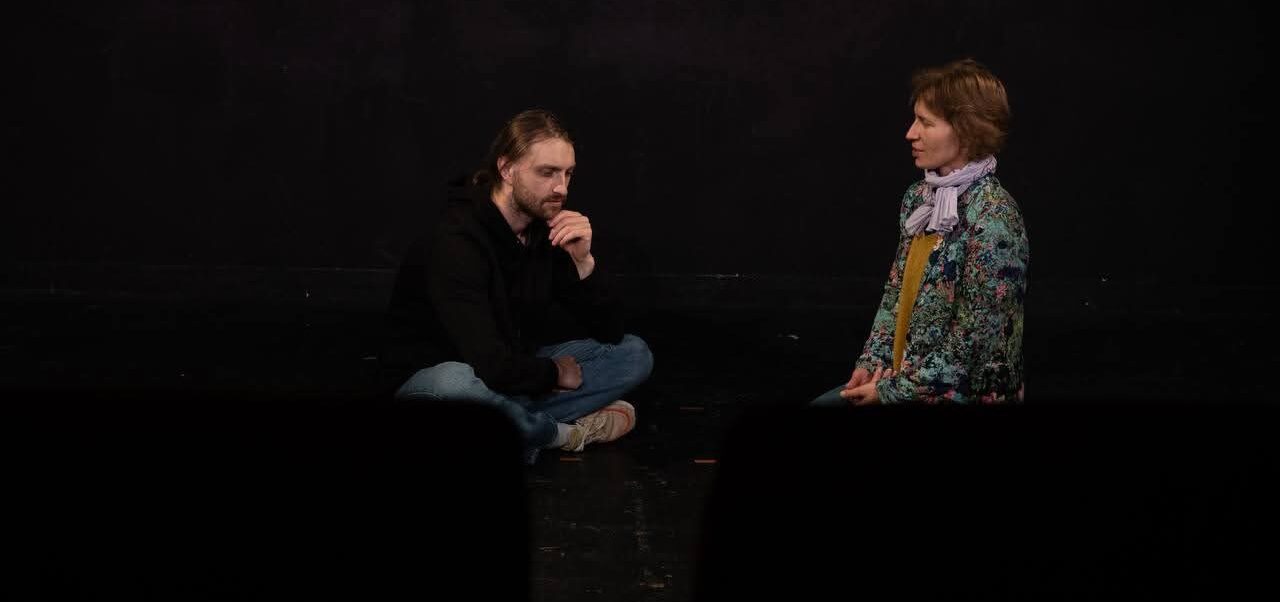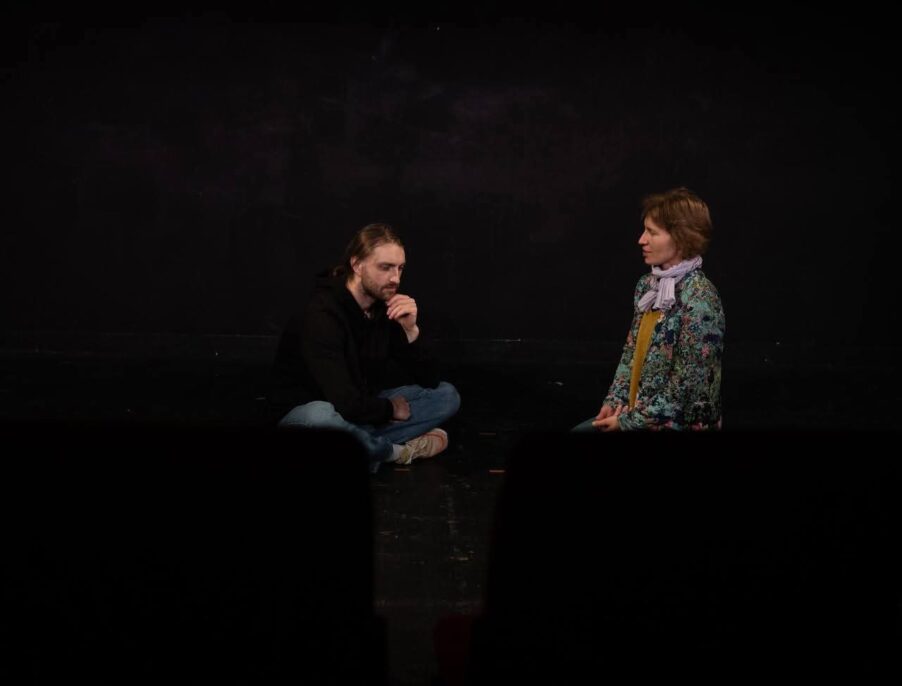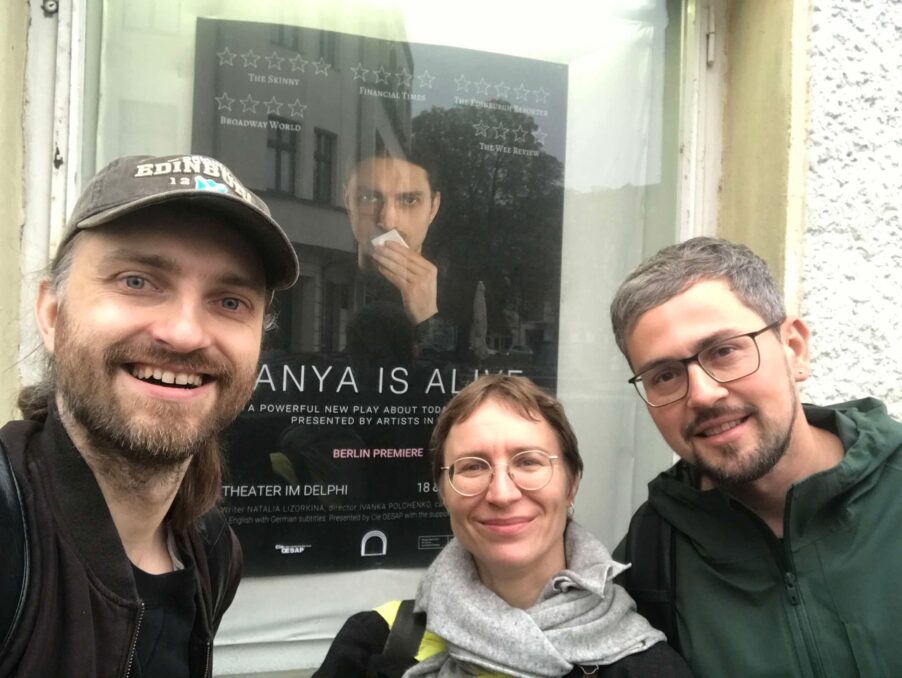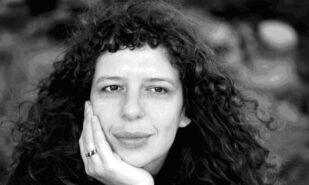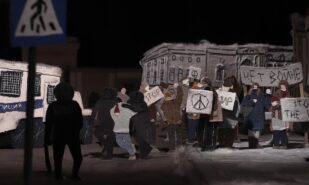Actor Nikolai Mulakov performed in the play Vanya Is Alive! by Natalia Lizorkina at the Edinburgh Fringe, and this work, directed by Ivanka Polchenko, has become one of the most striking statements about the war in the past two and a half seasons. A precise, painful, yet deeply loving production, it is returning to London—set to be performed at the Omnibus Theatre from February 4 to 8. We spoke with the actor and director about how the production came to life.
Nikolai Mulakov and Ivanka Polchenko: “Reality Dictated Our Artistic Solution”
Ivanka, were you the one who found Nikolai for the work on the play?
Ivanka: It was actually the wonderful Lena Gordienko who found him. She is now one of the art directors of the “Lyubimovka” festival. At the time, she had been invited to the Sorbonne as a researcher of contemporary theater processes and was one of the organizers of the Paris edition of “Lyubimovka” in 2022. She was very impressed by this text, and when I said I wanted to stage a reading, we decided to collaborate. We began searching for an actor—this was my idea, although Lena was initially upset because Vanya Lives is a wonderful text for women. We have so few texts for actresses, but I insisted. That’s when Lena remembered Kolya Mulakov.
Nikolai: At that time, I was living between Paris and Berlin, collecting documents for a talent visa in the UK. Then, I received an email from director Ivanka Polchenko. I read the play, and it was immediately clear to me that the text was outstanding. We prepared seriously, analyzing the text over video calls—before the first reading in Paris, I think we had six rehearsals. By then, it was already clear that this work had real potential.
Ivanka: Even then, I thought—this is an absolutely brilliant form for a play, one that naturally integrates into the format of a staged reading. It would have been a sin to refuse this unexpected discovery, which condensed everything into a single focal point. Every word gains meaning, and nothing can be discarded. We even kept the phrase: “This text can be sung, it can be read, but it must be spoken by one person.” This was just a stage direction; playwright Natasha Lizorkina felt that the text shouldn’t be split into multiple voices to preserve a unified poetic form.
Nikolai: After the reading, I told Ivanka that I really didn’t want to abandon this work. We met in a café in Paris, and I proposed translating the text into English and taking the play to the Edinburgh Fringe. I said, “I believe in us.” And Ivanka replied, “Let’s do it. What do we need?”
Ivanka: I started making inquiries, and on the first try, I called someone who turned out to be the director of a major theater complex. After my third question, he said, “This might work for us.” I explained that we are Russian artists presenting this text in the midst of what is happening today in Ukraine. He replied, “Why not? I think you have the right to speak!” I had been prepared to justify and explain why a Russian text performed by Russian artists could be significant today—and to this day, our Edinburgh premiere remains a great miracle for me.
Were you particularly nervous before the Edinburgh premiere? Did you sense that this work might be significant?
Nikolai: First of all, it was my first time performing in English. When we started working, I hardly spoke the language. I simply set a goal to memorize the text by the deadline. It was incredibly difficult—I spent four months on the couch, studying the text for four hours a day, almost losing my mind. Stepping onto the stage in Edinburgh felt like the Olympics. I don’t even remember the first part of the performance. Now it’s much easier. There are many Russian-speaking viewers, and they are very responsive. I worked at Teatr.doc—this accessible theater format is close to me, and it creates a friendly atmosphere at performances.
Ivanka: I think it’s important to note that Kolya didn’t just memorize the English text. It’s actually a very delicate process, which we continue to refine even now—working on the text and the language itself, aligning the translation with the original. I didn’t suggest performing it in Russian first and then translating it; we focused on the English version from the start, and it has been a truly unique experience. The music of the language, the broken intonations, the sometimes vibrant, emphasized Russian accent—all of it has become part of the play.
When working on the character of Alya, was it important to consider her as an obviously adult woman with specific life experiences? Or is she more of an incorporeal soul, her identity irrelevant?
Nikolai: Of course, the performance is grounded in life experience. Sometimes we tried to understand who Alya is as a person and what connects her to me. But primarily, I am a witness to what happens to her. We initially take the position of a narrator—we establish this at the start of the play and adhere to it. That boundary may sometimes blur.
Ivanka: The actor’s craft is another matter entirely. There are things that are crucial to me in the play, but the magic of theater for me is when the actor takes the work we did in rehearsals and perfects it on stage—that’s the greatest gift that can happen in theater. The play comes to life through the actor, who releases the work into the air in that moment. How that happens is the actor’s secret—truly a mystery.

